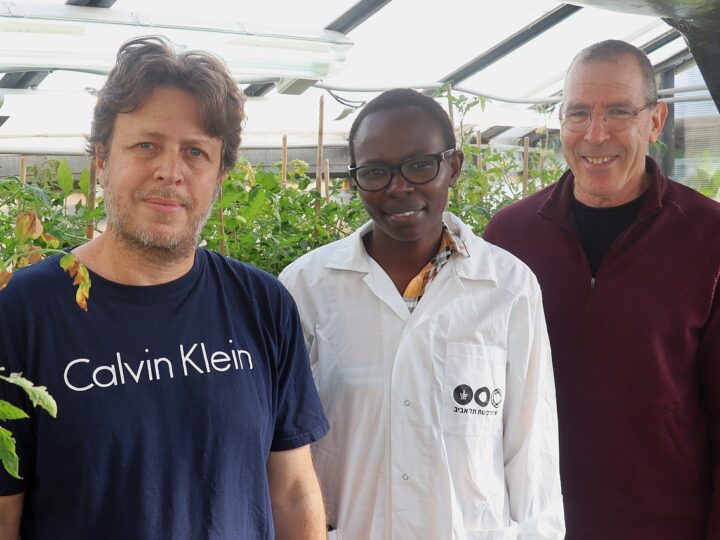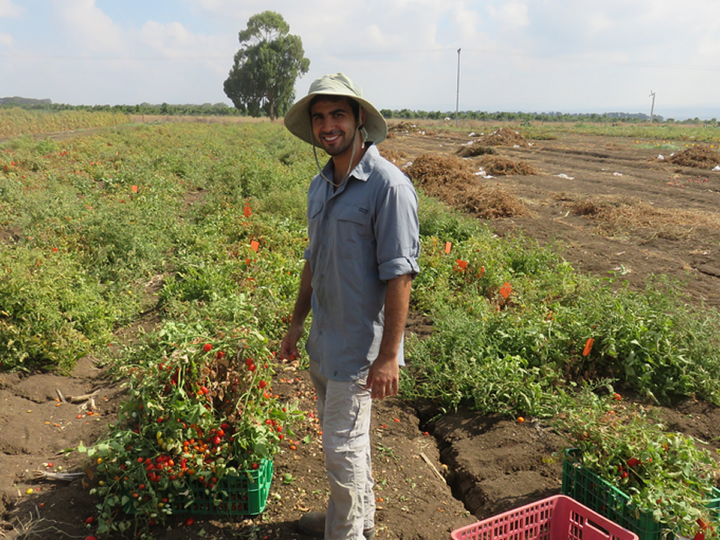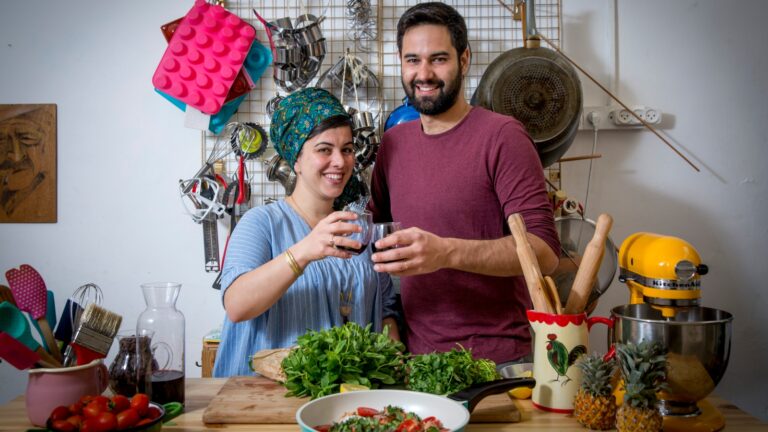If you are looking for a reason to eat more pizza and pasta topped with lots of tomato sauce, you can thank Israeli researchers for providing great justification.
Scientists at Ben-Gurion University of the Negev have identified why it is good for us to consume large quantities of tomatoes – and say that the best way to eat them is cooked up with some olive oil and cheese.
Scientists have long believed that the carotenoids found in fruits and vegetables have a cancer preventive effect. In particular, studies have found that as the consumption of tomato products increases, risk of certain types of cancer decreases – even more so than when a variety of vegetables are eaten. Over the years, studies have found that the risk of up to ten different types of cancer can be reduced by eating tomatoes. The preventative effect is due to the lycopen, the phytonutrient which gives tomatoes their red color.
What has been a relative mystery until now is precisely why this happens. But the BGU scientists are well on the way to discovering the precise mechanism that would explain this relationship between tomato consumption and cancer prevention.
In a study published in the January 2005 issue of Molecular Cancer Therapeutics, Dr. Yoav Sharoni and Dr. Joseph Levy discuss how carotenoids, well known for their antioxidant activity, also act to prevent cancer by stimulating the body’s antioxidant response element. Lycocenes, which comes from lycopen, is a member of the carotenoid family.
Stimulation of the antioxidant response element is an established mechanism for the mobilization of the body’s defense system against carcinogens and other harmful compounds.
“Luckily, we have an established system in our body to fight carcinogens and toxins. This system is the anti-oxidant response elements, Levy told ISRAEL21c.
“Put simply – when you have toxins or carcinogens attacking the cells, our bodies turn on this system. It produces a lot of enzymes which convert these toxins and carcinogens – that can cause DNA mutations that lead to cancer – to less toxic forms by expelling them from the body through urination.”
“What is new is that we have shown that the lycocenes and other family members, are the most active when it comes to turning on this antioxidant response system. Our study is focused on the mechanism of how carotenoids like lycopen successfully activate this known protective system in our body which produces the enzymes – we have found clearly that they activate this system. This is the mechanism which prevents cancer.”
The clear message this research points to: Eat lots of vegetables, and particularly tomatoes. Levy says that the research clearly shows that the so-called Mediterranean diet is superior to a meat-and-potatoes regimen when it comes to maintaining health, and recommends that people consider drastically increasing their vegetable consumption.
“If you can, incorporate between five to nine portions of fruits and vegetables in your daily diet,” he said.
Surprisingly, that doesn’t necessarily mean consuming piles of salad. Many people believe instinctually that vegetables like tomatoes are best eaten raw for maximum benefits. But Levy says the research points otherwise.
“Many of these materials are not soluble in water, so they are badly absorbed in our gut when eaten raw and by themselves. You have to take them with some fat, some cheese or oil in salad and more of that. If you cook them, they are very stable, and if you cook them with some oil and have them as sauce or soup they are better absorbed than raw tomatoes,” he said.
Levy holds the Irving Isaac Sklar Chair In Endocrinology and Cancer at BGU. He is a Professor in the university’s Clinical Biochemistry Department Faculty of Health Sciences, Ben Gurion University, and acts as the Head of the Endocrine Laboratory at Soroka Medical Center.
His research partner, Sharoni is also a Professor in the Department of Clinical Biochemistry, and is the past chairman of the department. Their work has received grant support from agencies including Chief Scientists of the Israeli Ministry of Health, European Community, Cap Cure, as well as from pharmaceutical and nutraceutical corporations.















